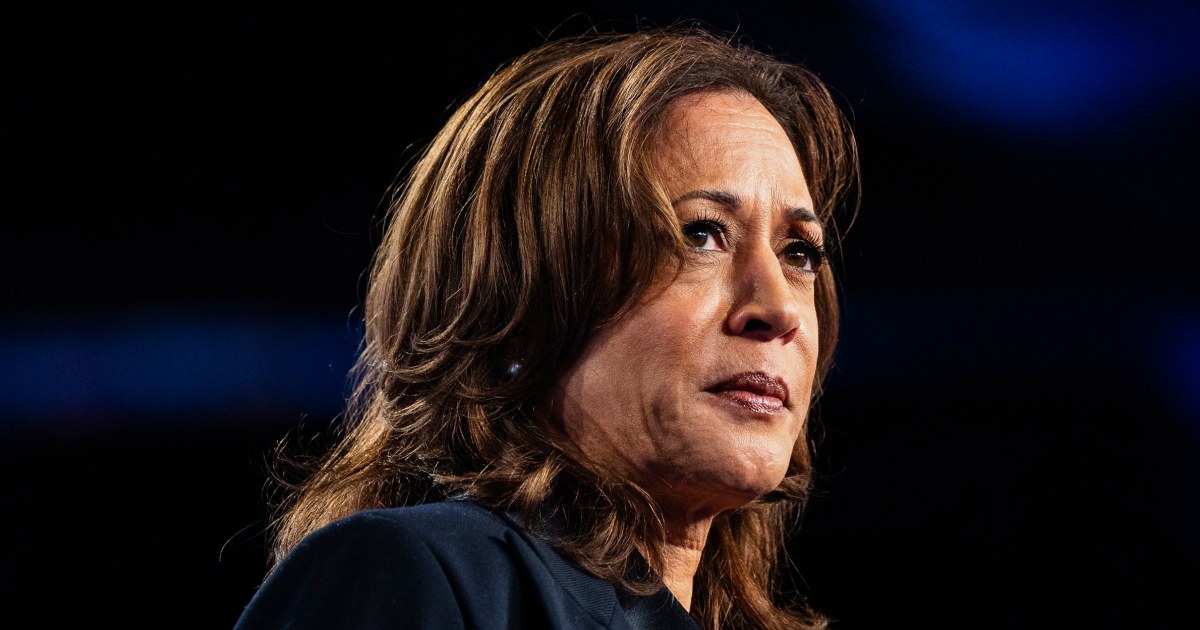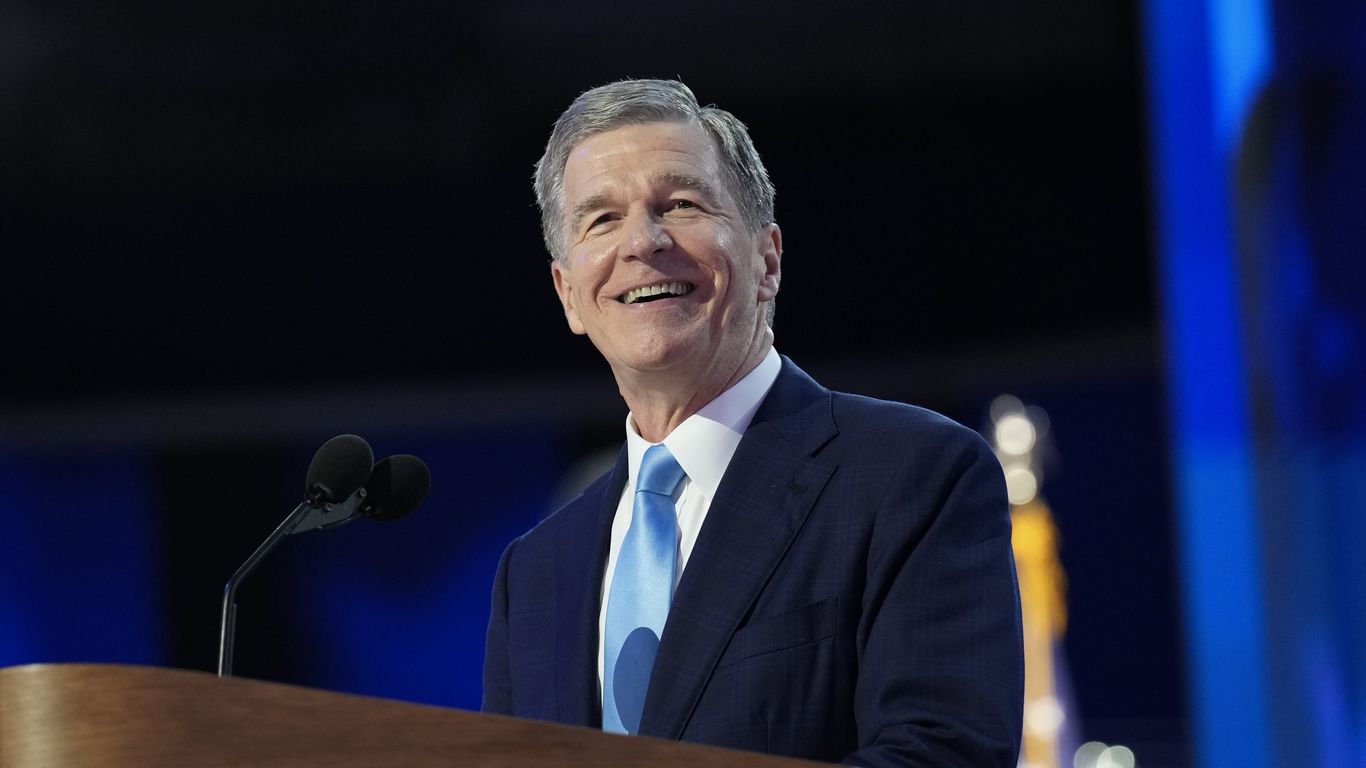Growing Divisions in the Democratic Party

Introduction
Kamala Harris, the first female and first Black and Asian American Vice President, has been a rising star in the Democratic party. However, not everyone in the party is fully on board with her. In fact, some Democrats have expressed misgivings about her, and there is a growing sentiment that they would prefer if she didn't run for President in 2028 or campaign actively in the midterms. This has raised questions about her future in the party and her potential for higher office.
The Concerns About Harris
While Harris has been a vocal advocate for progressive policies, some Democrats are concerned about her past record as a prosecutor and her moderate stance on certain issues. Additionally, there is a concern that her ambitions may overshadow the party's larger goals, causing division within the party. Some also question whether she has enough experience to be a successful presidential candidate, especially after her unsuccessful 2020 campaign.
The Impact on the Party
The misgivings about Harris could have a significant impact on the Democratic party as it looks towards the future. With a growing progressive wing and a desire for more diversity in leadership, there is pressure for the party to support new and more progressive voices. As the Vice President, Harris has the potential to shape the party's direction, but if she continues to face pushback from within, it could lead to a
About the People Mentioned
Kamala Harris
Kamala Devi Harris was born on October 20, 1964, in Oakland, California, and served as the 49th Vice President of the United States from 2021 to 2025 under President Joe Biden.[1] She made history as the first woman, first Black American, and first South Asian American to hold the office of Vice President.[1][2] Harris began her legal career as a deputy district attorney in Oakland from 1990 to 1998, where she specialized in prosecuting gang violence, drug trafficking, and sexual abuse cases.[1] She rose through the ranks to become District Attorney of Oakland in 2004, where she became a national leader in LGBTQ+ rights and established innovative programs, including one that provided first-time drug offenders opportunities to earn high school diplomas and find employment—a program designated as a national model by the U.S. Department of Justice.[2][4] In 2010, Harris was elected Attorney General of California, becoming the first woman and first Black American to hold that position.[1] She served in this role until 2017, when she was elected to the U.S. Senate, becoming only the second Black woman ever elected to the Senate.[6] During her Senate tenure, she championed legislation on hunger relief, maternal health care, climate action, and infrastructure while serving on the Judiciary and Intelligence committees.[3] As Vice President, Harris worked on addressing migration from Latin America, protecting voting rights, and preserving access to abortion following the 2022 Supreme Court Dobbs decision.[1] She cast the decisive vote for the Inflation Reduction Act, the largest climate investment in history, and presided over the confirmation of Justice Ketanji Brown Jackson to the Supreme Court.[3][4] Harris visited 36 states and made 17 foreign trips to 21 countries, meeting with over 150 world leaders.[2] On July 21, 2024, Harris announced her presidential campaign after President Biden withdrew from the race.[4] She became the Democratic Party's nominee on August 5, 2024, making history as the first Black woman and first South Asian woman nominated for president by a major U.S. political party.[4] She was defeated by Donald Trump in the November 2024 election.
About the Organizations Mentioned
Democratic Party
## Overview of the Democratic Party The Democratic Party is the oldest continuing political party in the United States, with its roots tracing back to 1792 as the Democratic-Republican Party. Founded by Thomas Jefferson and James Madison, it initially advocated for a decentralized government and states' rights, opposing a strong central authority[1][2]. Over time, the party evolved, becoming more progressive and supportive of federal government intervention in social and economic affairs. ## History The modern Democratic Party was formally established in 1828, with Andrew Jackson's presidential campaign marking a significant turning point. Jackson's successful campaign expanded voting rights to all white men, regardless of land ownership, and further reduced federal power[3][6]. The party became deeply divided during the Civil War era, with Northern Democrats supporting limited slavery expansion and Southern Democrats advocating for its perpetuation[3][5]. Post-Civil War, the party became a stronghold for Southern whites who opposed Reconstruction[3]. ## Key Achievements The Democratic Party has played a pivotal role in shaping U.S. history: - **Civil Rights**: The party supported key civil rights legislation, including the Voting Rights Act and the Civil Rights Act of 1964. - **Social Programs**: Democrats have been instrumental in establishing and expanding social programs like Social Security, Medicare, and Medicaid. - **Economic Policies**: The party has often championed progressive economic policies, including labor rights and environmental protection. ## Current Status Today, the Democratic Party is a major force in U.S. politics, advocating for a strong federal government role in addressing social and economic issues. It emphasizes progressive policies on healthcare, climate change, and economic inequality[6]. ## Notable Aspects - **Symbolism**: The party's symbol, the donkey, originated from Andrew Jackson's opponents calling him a "jackass," which his supporters adopted as a mascot[6]. - **Diversity**: The party has become increasingly diverse, representing a wide range of socio-economic and
















